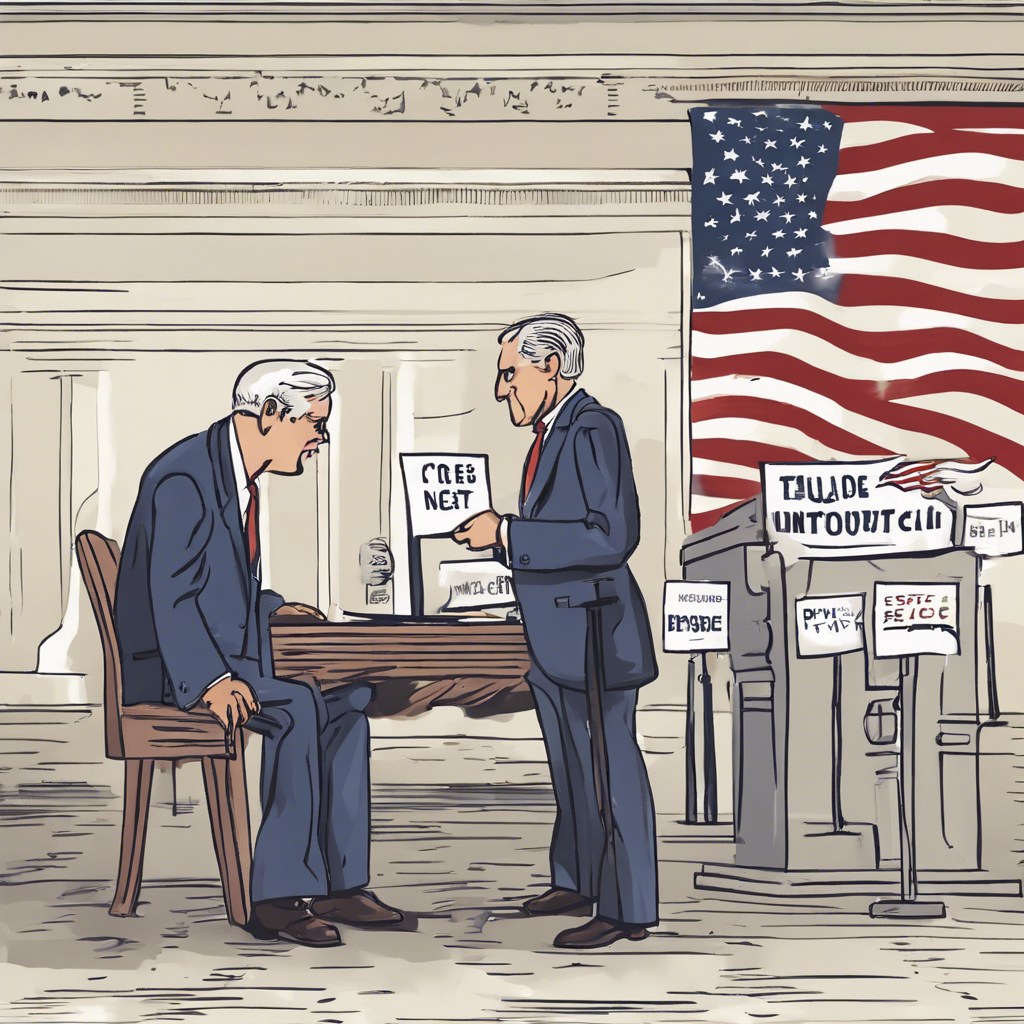Americans’ Economic Confidence Rises, Impact on Presidential Election Uncertain

Recent data suggests a surge in economic confidence among Americans, potentially impacting President Biden’s re-election prospects and challenging former President Trump’s narrative.
President Biden has been grappling with low approval ratings and dwindling consumer confidence figures, creating concerns for the White House as the country approaches a presidential election year. However, a glimmer of hope emerges as recent data indicates a shift in Americans’ economic sentiment. Rising confidence in the economy, coupled with optimistic inflation and interest rate expectations, could potentially bolster Biden’s chances for re-election and challenge former President Donald J. Trump’s economic critique. Despite these positive indicators, experts caution against premature celebrations, highlighting lingering economic risks that could disrupt the apparent progress. Current models predicting election outcomes based on economic data still point to a highly contested race come November.
Economic Optimism and Its Impact on Biden’s Re-election Prospects
Americans are expressing a renewed sense of confidence in the economy, with some measures suggesting the highest levels in years. This newfound optimism could prove beneficial for President Biden as he seeks to secure a second term. A positive economic outlook has historically been a significant factor in determining voters’ decisions, and a rebound in economic sentiment could sway undecided voters in Biden’s favor.
Experts suggest that the recent surge in economic confidence can be attributed to several factors. The successful rollout of COVID-19 vaccines, declining infection rates, and easing of pandemic-related restrictions have contributed to a sense of economic recovery. Additionally, the passage of the infrastructure bill and other economic policies aimed at job creation and boosting growth have bolstered public confidence in the administration’s ability to deliver on its promises.
However, caution remains necessary, as economic sentiment can be fickle. External factors such as global supply chain disruptions, geopolitical tensions, and unforeseen events could quickly erode the newfound optimism. It is crucial for the Biden administration to maintain a steady course and address any potential risks to sustain the positive economic trajectory.
Trump’s Challenge: Critiquing Biden’s Economic Record
Former President Donald J. Trump, the front-runner for the Republican nomination, has been relentless in his criticism of President Biden’s economic record. However, the recent upswing in economic confidence poses a challenge to Trump’s narrative. As Americans begin to feel more optimistic about the economy, Trump’s attacks on Biden’s handling of the economy may hold less sway with voters.
Trump’s argument that Biden’s policies have led to inflation and rising interest rates could lose traction if Americans perceive these issues as temporary and expect them to subside. The success of Biden’s economic agenda, including the infrastructure bill and other initiatives, could further undermine Trump’s claims and strengthen the Democratic incumbent’s position.
Nevertheless, Trump’s ability to connect with his base and his continued influence within the Republican Party cannot be underestimated. As the election approaches, his messaging and ability to rally support could still have a significant impact on the outcome.
The Uncertain Road Ahead
While the recent surge in economic confidence is encouraging for the Biden administration, experts urge caution in interpreting these indicators as a guaranteed path to re-election. Economic models used to predict election outcomes currently point to a highly contested race in November, suggesting that other factors beyond the economy will play a crucial role.
Factors such as foreign policy, social issues, and voter sentiment towards the political landscape may overshadow economic sentiment when it comes to voters’ decision-making. Additionally, unforeseen events and external shocks could quickly change the dynamics of the race, making it difficult to predict the ultimate outcome.
Conclusion:
The recent surge in economic confidence among Americans presents a potential boon for President Biden as he seeks re-election. Rising optimism about the economy, coupled with positive inflation and interest rate expectations, challenge former President Trump’s narrative and could sway undecided voters. However, caution is necessary as economic sentiment can be fragile, and numerous risks remain that could derail the apparent progress.
While economic indicators are essential, experts emphasize that other factors will also shape the outcome of the presidential election. As November approaches, foreign policy, social issues, and the overall political landscape will likely influence voters’ decisions. In this highly contested race, the final outcome remains uncertain, and both candidates must navigate a complex and ever-changing political landscape to secure victory.

